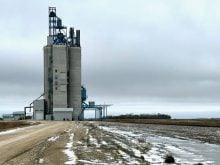RED DEER – Most farmers pay more attention to buying new land, cows or machinery than they do to hiring staff.
“How much time would you take to hire great employees rather than average or lazy employees?” asked Bob Milligan of the University of Minnesota.
He coaches potential employers to get the right workers using better advertising and interview techniques.
Big companies spend large amounts of money to recruit talent from a limited pool of workers. Farmers are in that competition and they may not present the best image of a farm as a good place to work, Milligan said at the Western Dairy Seminar March 5.
Read Also

Farming Smarter to hold Agronomy Battles series
Southern Alberta non-profit research institute hope grassroots sessions with producers help focus future research on cover crops, strip tillage and herbicide resistance
Farms looking for workers need to realize the traditional labour pool of white males is a declining proportion of a smaller pie. There are fewer young people in the workforce and they have different ideas about what a job means compared to the baby boomer generation.
Many farms rely on family labour. An Ontario study shows two-thirds of the workforce is family members on the average dairy, said Jack Rodenburg, a consultant.
“Many have built up the farms on the cheap labour of wives and children,” said Rodenburg.
But even when hiring children there need to be some incentives.
“Will your son become a dairy farmer making $18 an hour with the worries of high capital investment if he can go somewhere else and make $30?”
Also, the farm needs to be an attractive workplace with modern technology, a place where they are proud to work.
“Teach them that dairy farming is shoveling shit all day and they will find other careers,” said financial consultant Murray Pituley.
Recruitment is marketing and it is worth advertising the job as a family owned business since many people prefer to work in a smaller environment.
Many dairy hiring decisions are based on past work experience. However, most employers want someone who is reliable, likes animals and can learn.
Potential workers may have no agriculture experience but they can learn, so offer training.
When advertising a position, use words that describe the positive attributes of the business. Instead of saying “no whiners need apply” advertise good hours, competitive wages or working outdoors with animals to entice candidates.
Selection should be a formal, structured process rather than talking to a candidate during a tour of the farm.
Review resumes and applications, check references and realize more than one interview may be needed.
The interview is the heart of hiring and prepared questions should be used. Ask only legal questions. A general guideline is to ask only about things related to the job and an applicant’s ability to do the job. A person’s skin colour has nothing to do with the ability to milk cows, said Milligan.
Ask every candidate the same questions. This reduces bias.
Ask open-ended questions and listen to the reply. Rather than asking “do you have experience working with animals,” say, “describe your experience working with animals.”
It is less effective to ask, “what would you do if” as opposed to “tell me about the last time this happened.”
Once a candidate is hired, the farmer needs to work at becoming a preferred employer.
This means treating employees with respect and fairness.















